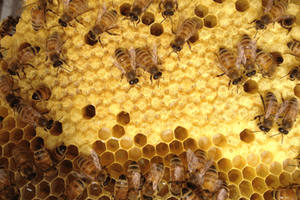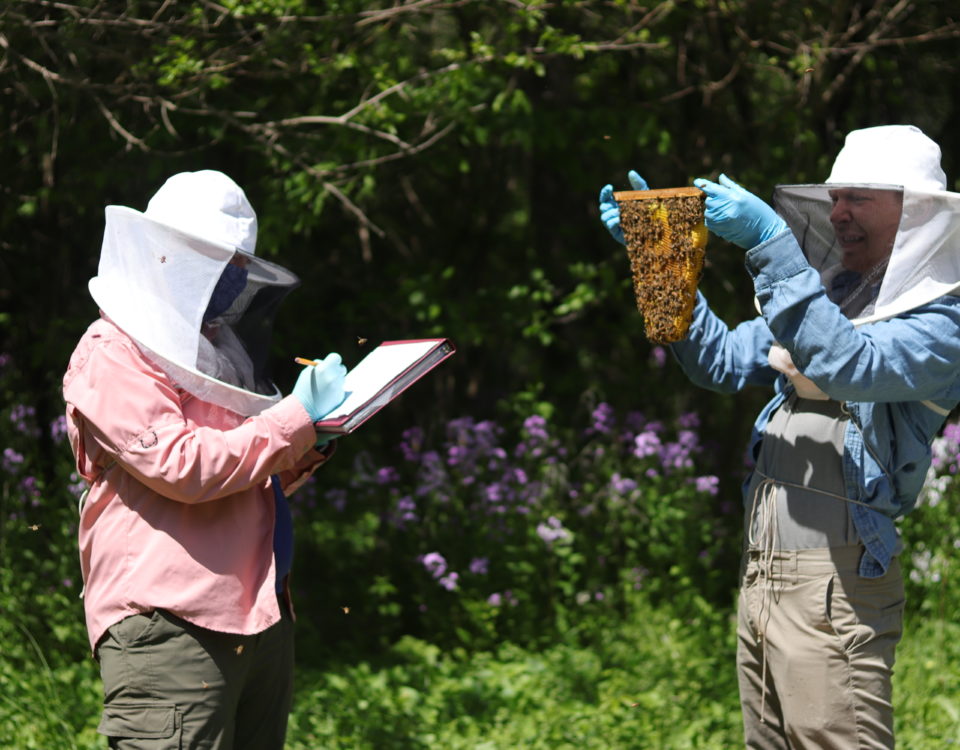- All-In-One Beekeeping for the Bees
- +1-608-728-8233
- info@beepods.com
Should You Add Bees or Chickens to Your Outdoor Classroom?



As you look to develop your school’s outdoor classroom, you may be asking that difficult question: bees or chickens? Here’s a scorecard to help you make that decision.
Rules
There may be city and county ordinances for both chickens and honeybees. Check before you add either to your school. Schools should also check with their state’s agriculture department for inspection or registration requirements.
Winner: Tie
Appetite
Bees forage for nectar, chickens eat everything in their path. Keep chickens away from your vegetable garden.
Winner: Bees
Helpfulness
Bees pollinate food crops and produce honey and wax. Chickens produce eggs, meat, and manure, and help eliminate pests.
Winner: Tie
Water
Both bees and chickens need fresh water but bees drown in pools of water. Make sure the bees have a source of water which has rocks or sticks so they can climb back out.
Winner: Chickens
Discrete Housing
A beehive is smaller than a chicken coop and can be hidden behind a bush or fence.
Winner: Bees
Egg Laying
A hen lays no more than one egg a day. A queen honeybee is capable of laying up to 2,000 eggs a day. Chicken eggs are edible, but honeybee eggs don’t require daily collection.
Winner: Bees
Reputation
Bees are associated with stinging and chickens with stinking. Only female bees sting and they only do when there is a direct threat to the hive or if they are poorly handled. Beepods hives are less invasive than other types of hives and, as a result, Beepods beekeepers rarely wear protective veils. All chicken coops smell at some point and need cleaning.
Winner: Bees
Overall Winner
The winner, as you can see, are the bees. The good news is that bees and chickens get along well and can be kept in close proximity to each other in your outdoor classroom. So once your hive is established get cracking on raising chickens!

Resources:
https://glorybee.com/blog/can-bees-and-backyard-chickens-coexist/
https://wholefedhomestead.com/raising-chickens-honey-bees-together/
https://www.beepods.com/learn/faqs/
https://the-chicken-chick.com/how-chickens-and-honey-bees-are-same/
Bill Polacheck
Latest posts by Bill Polacheck (see all)
- Level Up with a Beekeeping Course - September 15, 2020
- Beepods Harvest Box: Helping Your Bees Survive the Winter - September 8, 2020
- Simple Ways You Can Communicate Like a Bee - September 1, 2020



